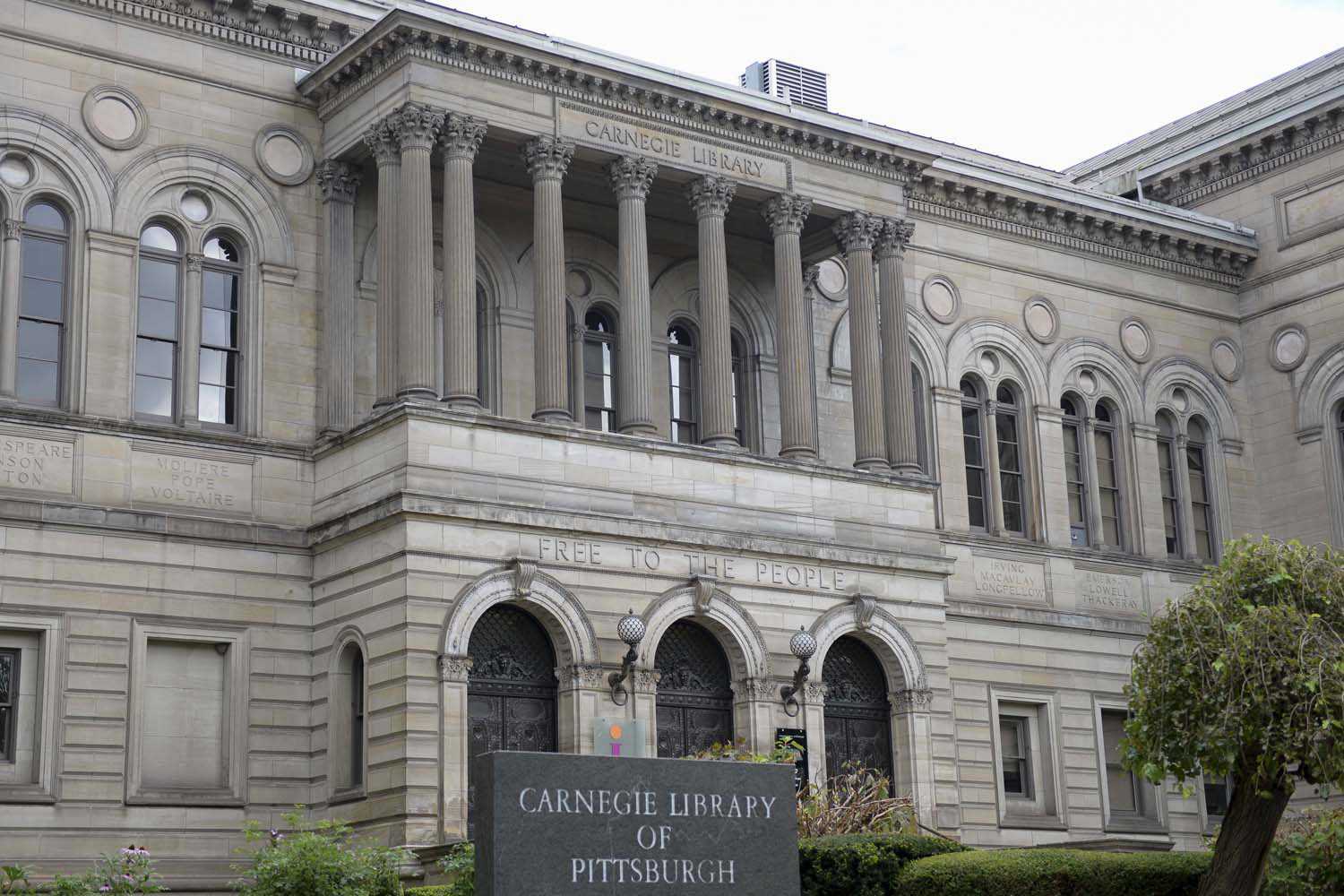Editorial: Pittsburgh, end public library fines


The Carnegie Library of Pittsburgh.
The only thing worse than reading Moby-Dick is returning it to find fines on your library card — though this might not be the case forever.
Carnegie Library of Pittsburgh began piloting a fine elimination program at its Knoxville, Allegheny and East Liberty branches Nov. 1. According to the Pittsburgh City Paper, CLP is doing this in conjunction with nine other Allegheny County Library Association libraries.
Many other cities, including Chicago’s entire public library system, have done away with library fines. Both the libraries and the residents using the libraries reaped benefits of forgiven fines. CLP said currently it’s not piloting to go fine-free, only to gather supplemental research on the ways in which fine free libraries could affect the community. Research has already shown that fine-free libraries are extremely beneficial — CLP should work toward making libraries fine-free as soon as possible.
Those against slashing late fees often argue that if the fees are taken away, people simply will not return their library books. Instead, the fine erasure seems to have the opposite effect. After taking away late fee fines, the Chicago Public Library system found a 240% increase in the amount of book returns. It’s likely, according to Forbes, that the policy change prompted people to return overdue books, since they would no longer have to pay the hefty fine attached to them. Other cases across the United States have shown the same result. There is no increase in overdue or missing books when the late fee is erased.
Revenue loss from the collected fines isn’t much of a problem for Carnegie Library of Pittsburgh either, it seems. Marta Hornes, the CLP library services manager, told the City Paper that fine payments make up less than 1% of the library system’s annual operating budget. She also noted that the library is questioning the value of fines, since fines create significant barriers for patrons — some people cannot afford to pay library fines, and since a cardholder can’t check out books when there are fines on their card, the holder has no choice but to pay the fine or stop using the library.
CLP says it will spend four to six months evaluating fine-free library branches before deciding whether to make additional libraries in the CLP system fine-free. Though the pilot program has only been in place for a little more than a month, CLP reported that it’s already seeing an increase in library card usage at the fine-free libraries.
Libraries are first and foremost hubs of information for the people. We need to make them accessible for everyone, not just those who have the money or resources to pay fines. CLP is off to a good start with the pilot program. It would be wise to implement fine forgiveness as soon as possible. Everyone will benefit.
Recent Posts
Pitt speech and debate team heads to nationals
The William Pitt Debating Union, Pitt’s speech and debate team, sends students to both in-person…
Visuals: A Year in Review
The visuals desk had an interesting year. In the midst of the 2024 Presidential Election,…
De-stress events across campus offer students a break from studying
During finals week, departments across campus are offering wellness events to help students manage stress…
Pitt students share their summer plans
After a long and strenuous academic year, many students are excited to take a break.…
Column | Collaboration and connection make us better — yes, even in journalism
Today is the last day I will ever do this, and despite the amount of…
Column | Things done and left undone
The saddest part of it all is not the fact that I will have to…

